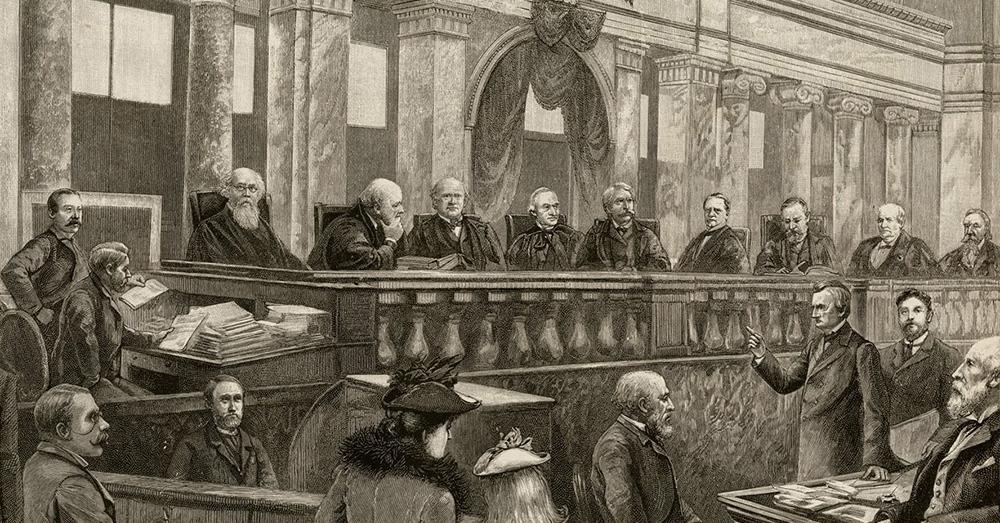Are you curious to know what is a historical argument? You have come to the right place as I am going to tell you everything about a historical argument in a very simple explanation. Without further discussion let’s begin to know what is a historical argument?
History, often referred to as a continuous dialogue with the past, isn’t merely a collection of facts and events—it’s a tapestry woven by the interpretations and analyses of historians. At its core, a historical argument represents the foundation upon which historians construct narratives, interpret evidence, and offer explanations about the past. Let’s delve into the intricacies of what constitutes a historical argument and its significance in shaping our understanding of history.
What Is A Historical Argument?
A historical argument serves as the central thesis or claim put forth by historians based on their interpretation of historical evidence. It forms the backbone of historical writing, guiding the narrative and shaping the way events and information are presented to audiences.
Evidence And Interpretation:
At the heart of any historical argument lies evidence—sources, documents, artifacts, and other traces left behind by the past. Historians gather and analyze these pieces of evidence to support their arguments. However, interpreting historical evidence involves critical thinking and analysis, as historians often encounter conflicting or incomplete information.
Multiple Perspectives:
History is not a monolithic truth but a complex interplay of multiple perspectives and interpretations. Different historians may present contrasting arguments based on their analysis of the same set of evidence. These differing viewpoints contribute to the richness and depth of historical discourse, prompting discussions and debates within the field.
Contextualization And Analysis:
A robust historical argument doesn’t merely present facts but contextualizes them within the broader historical, social, cultural, and political landscape. Historians analyze the context surrounding events, considering factors such as societal norms, economic conditions, power dynamics, and the influence of individuals or movements.
Revision And Evolution:
Historical arguments are not static; they evolve over time as new evidence surfaces, methodologies advance, and perspectives change. The process of revising historical interpretations is integral to the discipline, allowing for a more nuanced understanding of the past and challenging established narratives.
Learn more about similar topics like these on Clynerr.
Importance And Impact:
Historical arguments shape our collective understanding of the past and influence how history is taught, remembered, and used in shaping contemporary discourse. They help us make sense of the complexities of human experience, offering insights into the causes and consequences of historical events.
Conclusion:
In essence, a historical argument represents the culmination of a historian’s analysis, interpretation, and synthesis of evidence to construct a narrative about the past. It forms the cornerstone of historical writing and scholarship, guiding our exploration of history and enabling us to grapple with the complexities and nuances of bygone eras.
Understanding historical arguments isn’t just about memorizing facts; it’s about engaging in critical thinking, analyzing evidence, and appreciating the diverse perspectives that contribute to our understanding of the past. By examining and evaluating historical arguments, we navigate the intricate tapestry of history, continuously uncovering new layers and insights that enrich our comprehension of the human journey through time.
FAQ
What Are The Three Components Of A Historical Argument?
Historians construct arguments through claims, evidence, and reasoning/explanation.
Which Statement Is An Example Of A Historical Argument?
Expert-Verified Answer
The statement that is an example of a historical argument would be this: Rome collapsed because of internal weaknesses, not because of attacks from foreign invaders. When we say argument, this means that it is a set of propositions made to show that a particular conclusion is true.
What Is A Historical Argument For History Fair?
NHD projects must do more than just tell a story. Historians create a historical argument to state what they will prove through their writing. The historical argument is a clear and specific two or three-sentence statement that contains the how and why of what historians found in their research.
How Do You Evaluate A Historical Argument?
How should students evaluate historians’ arguments?
- Begin by identifying the author’s particular viewpoint. …
- Be on the lookout for ‘views within views’. …
- Form an opinion on the historian’s argument by applying what you already know about the topic. …
- Never be afraid to question the historian’s arguments.
I Have Covered All The Following Queries And Topics In The Above Article
What Is A Historical Argument Nhd
What Is A Historical Argument Example
What Is Not Part Of A Historical Argument
What Is A Historical Argument Example
What Is A Historical Argument In History
What Is A Historical Argument Essay Example
What Is A Historical Argument Essay
What Is A Historical Argument Nhd
Identify The Components Of A Historical Argument.
Historical Argument For The Existence Of God
Historical Argument Topics
What Is A Historical Argument
